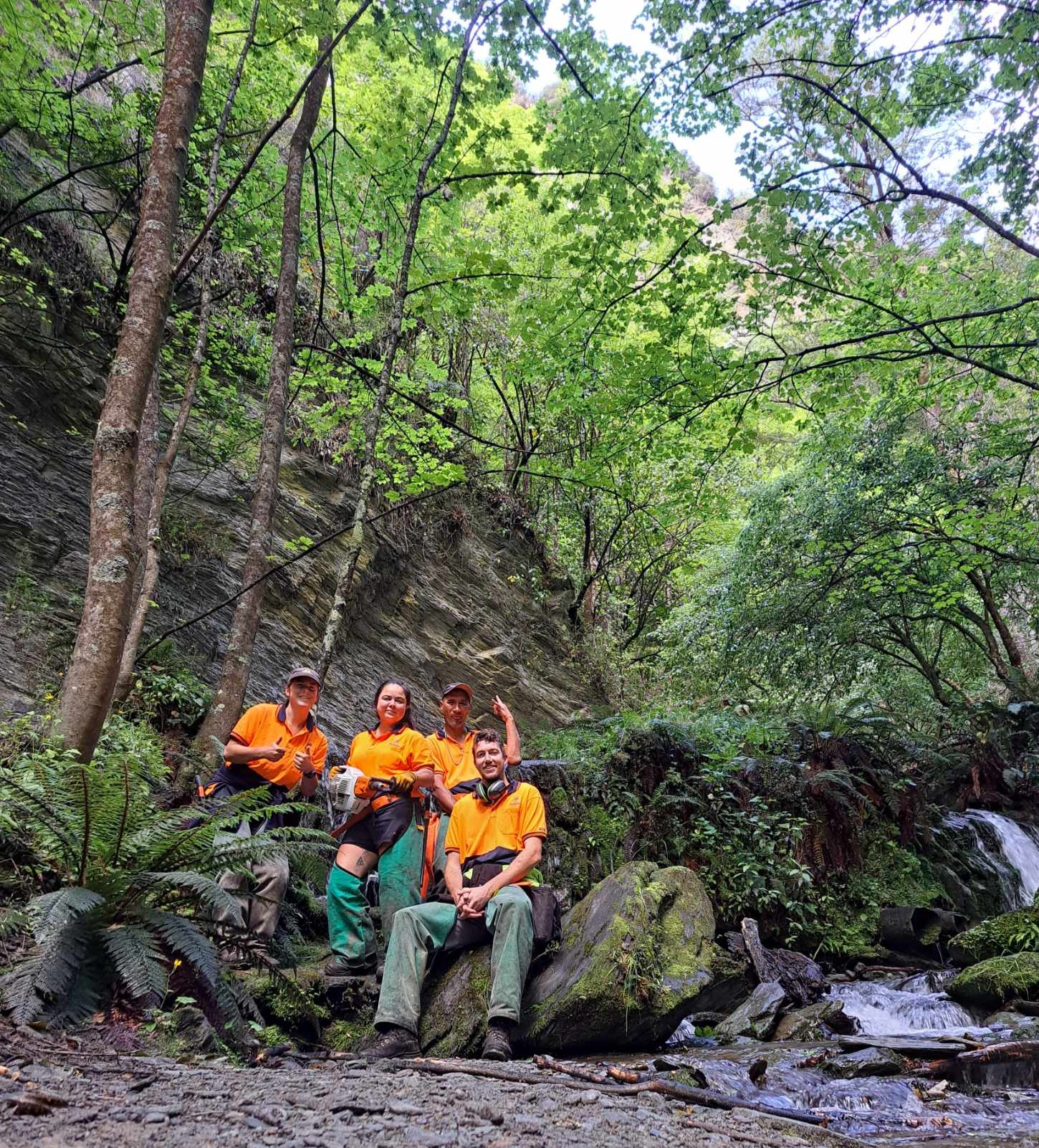The Toitū Te Hakapupu/Pleasant River Catchment Restoration Project, a $5 million partnership with Kāti Huirapa Rūnaka ki Puketeraki, was primarily funded by the Ministry for the Environment (MfE) with additional funding from ORC and landowners.
The project has exceeded its targets for delivering actions to improve water quality in East Otago.
ORC’s Team Leader Integrated Catchment Management, Melanie White, says “collaboration was the cornerstone of its success.”
Over four years, the project has delivered:
- 92,000 native plants established along waterways and wetlands
- 39 km of fencing to exclude stock from waterways.
- Sediment traps, erosion planting, and willow removal to protect stream health
- Significant gains in fish passage, opening up 95% of the catchment for migration
Ms White says the project has also strengthened cultural and community connections, with mana whenua leading ecological and cultural monitoring, producing 40,000 plants from their nursery, and producing a Restoration Plan for Owhakaoho (Hakapupu Sandspit) and a landscape plan for Hikaroroa / Mt Watkin.
“Toitū Te Hakapupu has shown what’s possible when mana whenua, council, landowners, and the wider community work together. We’ve not only improved water quality, but reconnected people to the awa and created a strong foundation for ongoing restoration,” Ms White says.
The Ministry for the Environment has extended funding by one year, adding $80,000 for the East Otago Catchment Group to develop a Pest Management Strategy for Te Hakapupu / Pleasant River Catchment — to support the momentum continuing.





